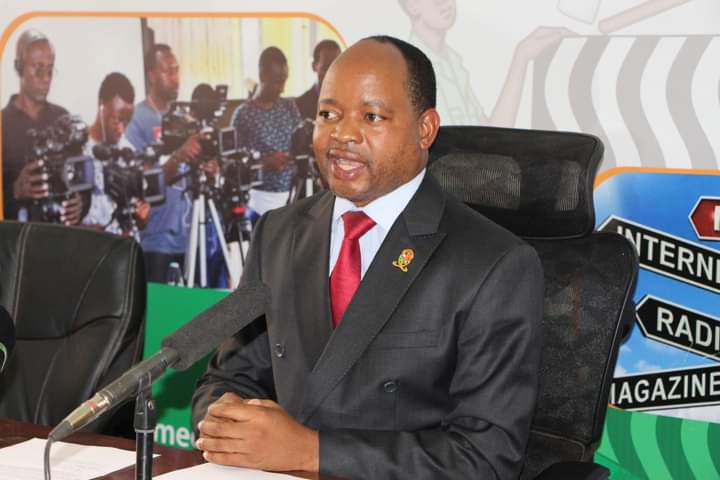
The President of the Republic of Zambia, Mr. Hakainde Hichilema, called for the 11th (Special) Cabinet Meeting at State House on Monday, 10th June, 2024, to deliberate on the budget including energy and mining issues, in line with the economic transformation Agenda for the New Dawn Government.
Cabinet made the following policy decisions:
- 2024 Revised National Budget.
During the Meeting, Cabinet approved the 2024 revised budget. Government has found it necessary to revise the 2024 Budget in order to protect vulnerable households against the effects of the drought, while building resilience and sustainability through the implementation of early recovery interventions in line with the declaration of a State of Disaster and Emergency. Further, the revised Budget takes into account the Debt restructuring agreements reached with all creditors and the current macroeconomic conditions.
The Revised 2024 National Budget will be tabled in the National Assembly, as business resumes on Tuesday, 11th June, 2024.
- Establishment of a Special Purpose Vehicle for Investment and Trading in Mineral Resources in the Mining Sector.
Cabinet also approved the establishment of a Special Purpose Vehicle (SPV) for investment and trading in mineral resources in the mining sector. Cabinet has since found it necessary to establish a Special Purpose Vehicle for investment in the mining sector in order to move away from the dividend payment model for mineral resources and adopt a production-based sharing mechanism to ensure benefits accrue to the people of Zambia beyond Statutory obligations.
It has been observed that Zambia has been using the dividend payment model, as a business model for investment in the mining assets. Therefore, going forward, the implementation of the new business model will allow for, actual sharing of minerals produced; Government to negotiate its own prices for the minerals; guaranteed revenue from the sale of such minerals; ensuring correct declaration of mineral composition of consignments designated for export and domestic use; and guaranteed availability of raw materials for local companies engaged in value addition.
- Open Access to the Transmission and Distribution Lines.
Cabinet also approved the Open Access to the electricity Transmission and Distribution Lines, which involves, separation of the system operator function from ZESCO; creation of an Independent System and Market Operator (ISMO); and electricity open access market structure and open access regulations that will outline open access market rules.
Cabinet has found it necessary to make such a progressive policy decision, which is also in line with the Energy Policy and the Electricity Act. The market structure and open access regulations will, promote non-discriminatory access to the transmission and distribution networks; foster competition giving consumers alternative sources of electricity thereby creating competition, as competition leads to better quality services and lower prices.
The decision by Cabinet will further encourage investment in transmission and distribution infrastructure as third-party users will pay for network use, thereby creating sufficient revenue for network owners to develop and maintain the grid; promote investment in generation and security of supply as more power producers will invest in generation.
It is further envisaged that the proposed open access market structure will enhance electricity security of supply necessary to support the Government’s industrialisation and economic diversification agenda; and lessen the financial stress on ZESCO because an Independent Power Producer can sell directly to a big consumer such as a mine without ZESCO being forced to be the off taker.
- Promulgation of Statutory Instruments for the Net-Metering Regulations and the Distribution Grid Code Regulations from the Provisions of the Electricity Act No.11 of 2019.
In concluding deliberations for the day, Cabinet approved the promulgation of two proposed Statutory Instruments to introduce Net-Metering Regulations and Distribution Grid Code Regulations in Zambia as provided in the Electricity Act No.11 of 2019.
The promulgation of the two Statutory Instruments will encourage investments in net-metering generation and promote self-reliance among consumers, as well as to ensure reliability and stability of the power system and non-discrimination against renewable energy sources that would be integrated in the national grid so as to reduce the burden on the national grid and free up electricity for other economic activities.
Cabinet indicated that, with the current situation where Net-Metering Regulations are not in place, investments in net-metering generation by consumers are not available. This has led to consumers relying heavily on the electricity from the grid. This situation has, therefore, resulted in the disruption of consumers’ socio-economic activities each time there is a power supply interruption like in the current drought situation. Further, absence of Distribution Grid Code Regulations compromises the reliability and stability of the power system and potential discrimination against renewable energy sources that would be integrated in the National grid.
The proposed Statutory Instruments will promote self-reliance among electricity consumers connected to the grid, thereby freeing up electricity for other socio-economic activities leading to national development and assure reliability and stability of the grid even in the presence of renewable energy sources.
It is in the interest of Cabinet to ensure that the country has the required energy for domestic use as well as for economic activities in the country.
(Original copy signed)
Hon. Cornelius Mweetwa, MP
MINISTER OF INFORMATION AND MEDIA AND
CHIEF GOVERNMENT SPOKESPERSON
12th June, 2024

